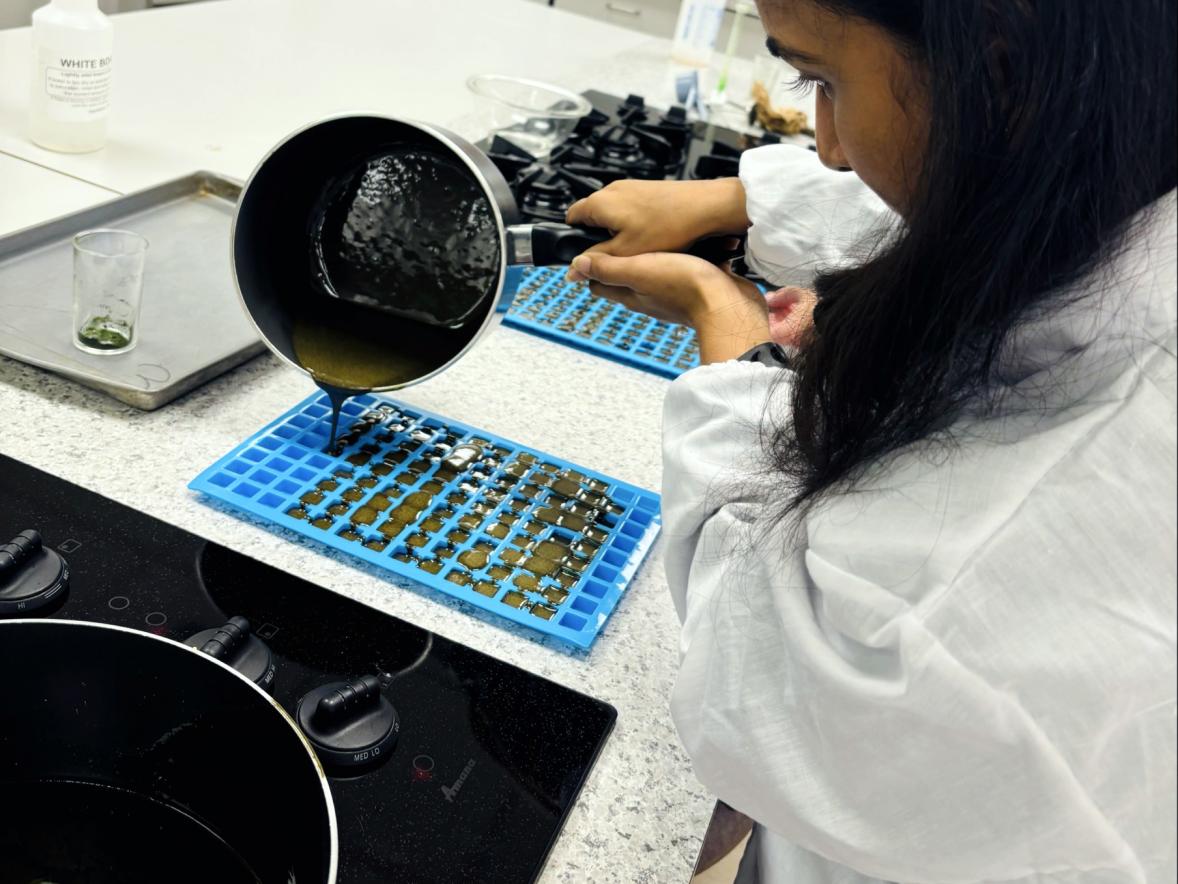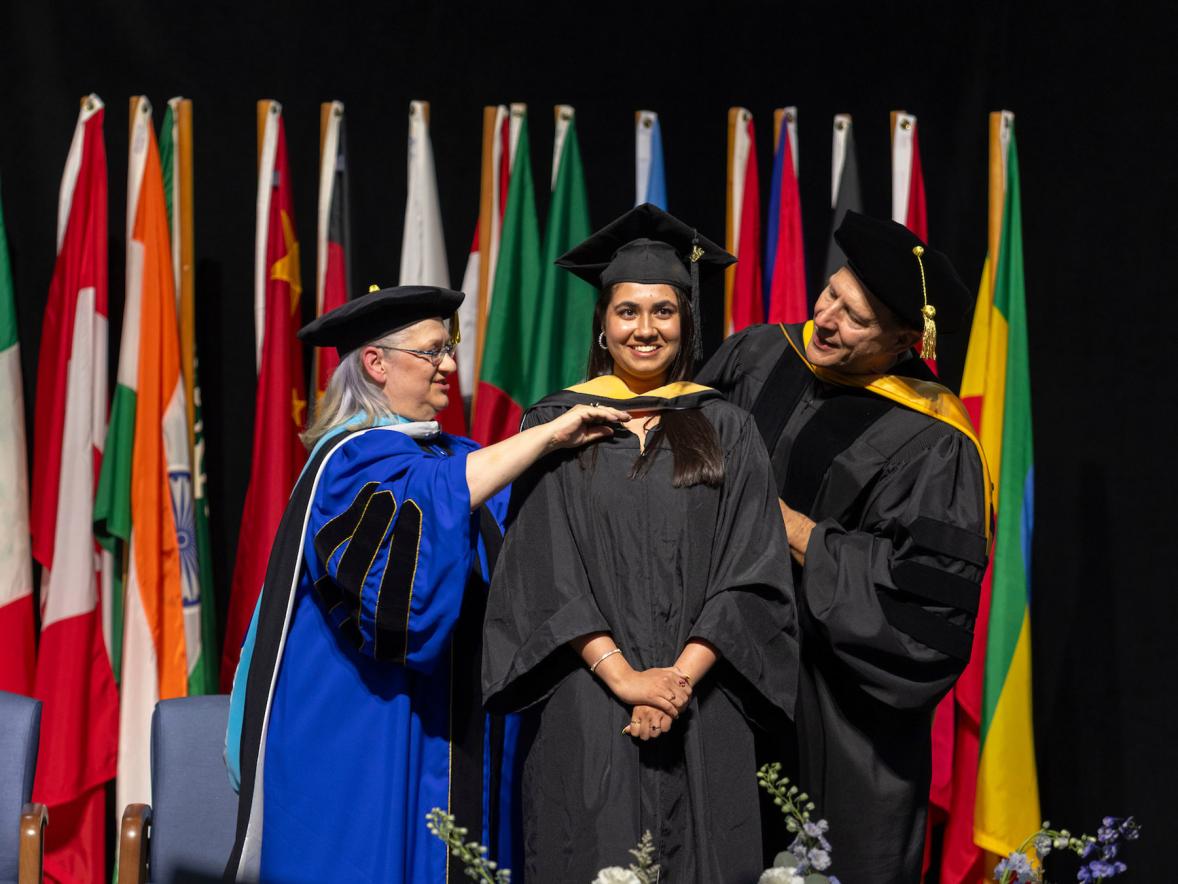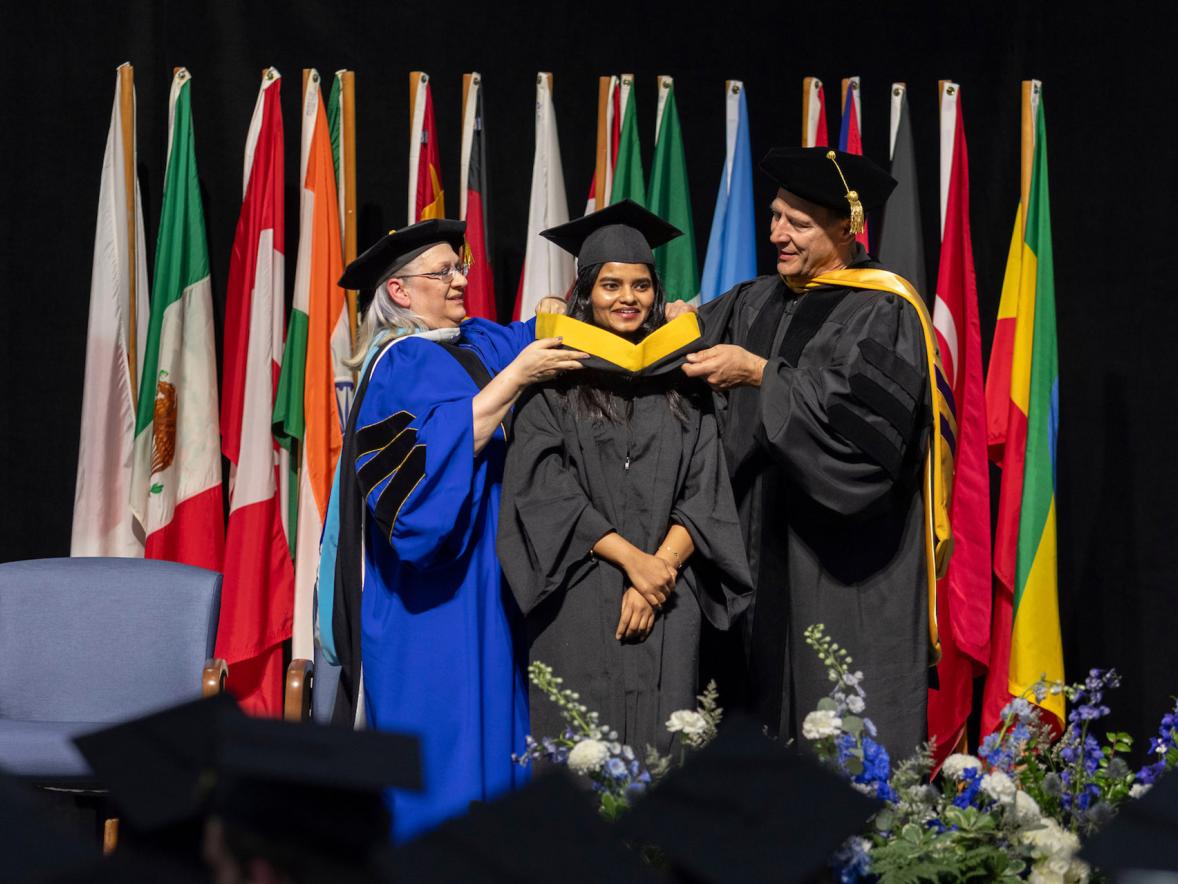Despite the cold weather, 17 food science majors from China were warmly welcomed to the Midwest this spring term to join their peers on campus in University of Wisconsin-Stout’s food science and technology program.
The students will earn dual degrees from UW-Stout and their home institutions as part of the Sino-American CHEPD 1+2+1 program, organized by the China Center for International Educational Exchange through a partnership with the American Association of State Colleges and Universities.
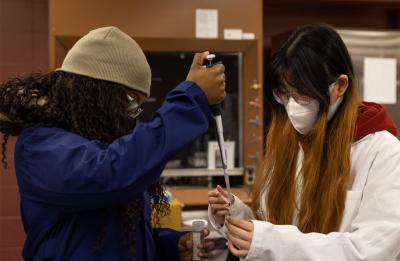
In 2019, UW-Stout partnered with Changshu Institute of Technology, located near Shanghai, and Northeast Agriculture University, located in Harbin, northeastern China. Under the dual-degree arrangement, students complete their first year at their respective Chinese institution, their second and third years at UW-Stout, and their final year in China.
Credits are mapped through an articulation process and transfer in both directions toward degree completion. Participating students, who are sophomores, are enrolled in courses with their domestic peers.
“We are thrilled to have these students join Stout,” said UW-Stout’s Office of International Education Director Scott Pierson. “It is important to recognize the power of international education and exchange in terms of the unique advantages it provides participating students, such as the ability to receive degrees from two countries and graduate completely bilingual. Perhaps more importantly, these programs provide a bilateral platform for cultural sharing, learning and networking. People-to-people diplomacy, especially during times of increased nationalistic tension and competition, is of paramount importance.
“Studying overseas provides all parties involved a win-win proposition. The opportunity for international and domestic students to realize firsthand how much they have in common culminates mutual understanding and the development of friendships that transcend politics,” he added. “Today’s students, whether from Harbin, Changshu or Menomonie, will become tomorrow’s leaders. UW-Stout is proudly preparing future generations of collaboration, peace and prosperity.
Why food science?
With a population of approximately 1.4 billion citizens, food production, supply and safety are critically important in China. When joining the CHEPD 1+2+1 program, UW-Stout realized an immediate interest in establishing food science partnerships with Chinese higher education institutions, Pierson said, noting UW-Stout’s Bachelor of Science and its Master of Science in food science and technology are accredited by the Institute of Food Technologists.
“We were excited by the immediate desire to partner in food science and are eager to expand partnerships in other fields post-pandemic,” Pierson said.

Xinyue Wu, of Yangzhoum, China, and Jingyi Xu, from Changshu City in Jiangsu Province, wanted to study in the U.S. because they feel it is a global leader in food science, as well as education.
“Education here also focuses more on students' participation and research thinking ability, which is what I have always liked,” Wu said. “There are internship opportunities that can greatly improve my success rate when applying for a job and prepare me for the workplace in the future.”
“Obtaining a dual degree will enhance my value and facilitate my further study, which will make it more convenient for me to find a job in the future,” Xu added.
Xu feels that severe food safety situations and food problems are emerging one after another, which sparked her interest in studying food science.
“Food has been a hot topic since ancient times,” she said. “Now, food safety has gradually become important to people, which creates a wide employment scope for food science majors, including at food science institutes, food supervision departments and enterprises.”
Wu’s interest in food science stems from the field’s interdisciplinary aspect and extensive topic range. “With a little in-depth research in the directions of eating, health, nutrition and safety, you will step into the threshold of other disciplines. And so, the career prospects of food science are relatively broad,” she said.
And as her family works in food and catering, she also wishes to help take care of the health of her relatives and friends. “On the battlefield or stage of food science, as an industry insider, I will have a natural advantage.
“With the advent of economic globalization, countries around the world are closely linked. Obtaining a dual degree in food science will allow me to enjoy rich resources and integrate into the information age faster,” Wu added.
A safe and friendly environment
The CHEPD 1+2+1 students arrived at UW-Stout a week prior to the start of the spring semester to take part in a comprehensive orientation program, which was aimed to help them settle into their new surroundings and ease their adjustment. Faculty and administrative staff coordinated a series of activities, including academic advisement, tours of the university’s facilities and trips to local stores.
The students are living in on-campus housing, with the majority living in North Hall, a residence hall with intentional international programming. Other students have opted to live in Red Cedar Hall. Both locations provide a shared, intercultural living community experience.
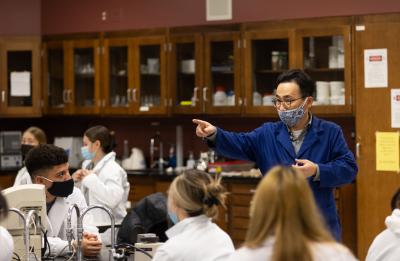
In the classroom, Wu and Xu were immediately impressed by the teachers’ and students’ enthusiasm. Wu thinks the professors’ PowerPoint presentations and reading materials are rich, and the text is concise with the latest scientific research.
“The teachers also spend time for students to discuss. In the experimental labs, they pay attention to students' discoveries, which tests our observations, comparisons and imagination,” Wu said.
The students were tested by UW-Stout’s English as a Second Language Institute after arrival. Some were ready to begin with a full course of undergraduate study, while others are taking a combination of ESL and undergraduate courses and a third set has full-time ESL instruction before engaging in undergraduate coursework.
“I thought the experience could broaden my horizon and help with my English skills,” Xu said.
She added that she feels that, just like in China, the pandemic measures at UW-Stout are very strict. “Everyone has to wear masks when going out, and there are supporting medical clinics on campus and in town to ensure our health.”
Wu believes studying abroad helps make people more mature and stable. “The United States is a big cultural country. I can meet interesting people from different cultural backgrounds, which can help me broaden my mind, expand my horizons and increase my personal experience,” she said.
The CHEPD 1+2+1 program started in 2000. UW-Stout joined as a participating U.S. higher education partner in September 2018 and recruits dual-degree students annually. OIE is expecting to receive a number of students from both partners for years to come.
“Experiencing international student growth on our campus is critically important, as we believe a quality education is a global education. I am so glad that the UW-Stout academic community continues to engage in this process, despite over two years of adversity due to the global pandemic,” Pierson said. “As an institution, we look forward to ensuring our dual-degree students experience tremendous success, both academically and socially, and are sure that our community will provide them with a very warm Wisconsin welcome.”
Approximately 6,000 Chinese students from 126 participating Chinese institutions have taken part in this unique opportunity at 40 participating AASCU institutions.
There are 172 international students from 42 countries studying at UW-Stout this academic year.





